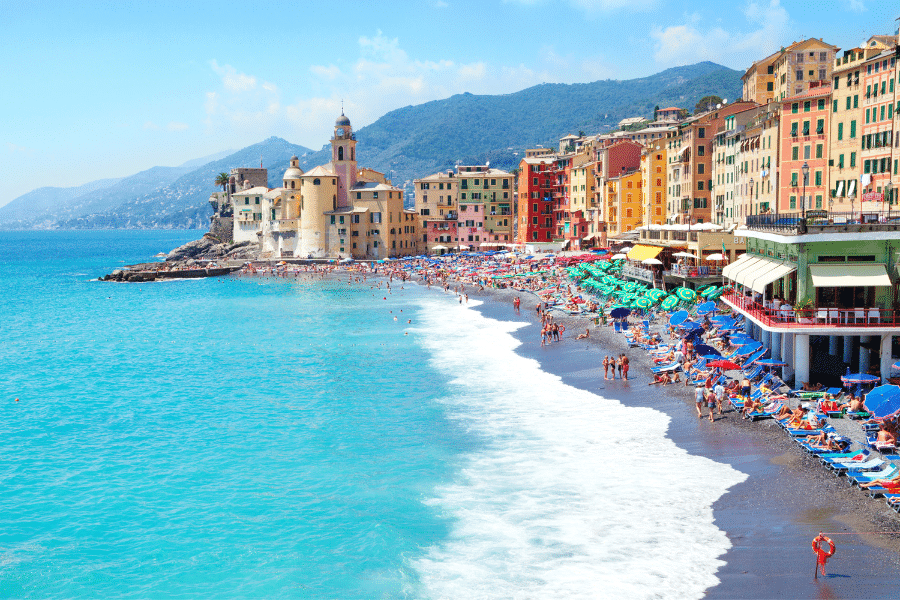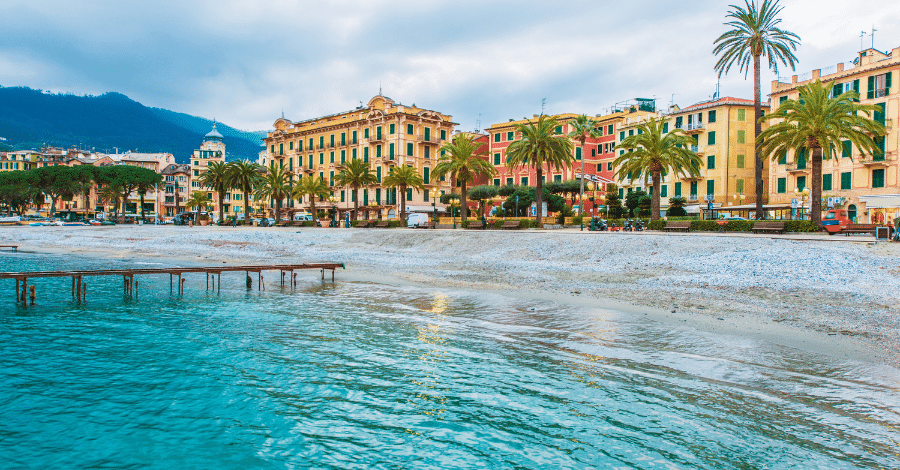If you’re considering retiring in Europe, several countries offer retirement or elective residence visas specifically designed for retirees.
In this article, you will find out which European countries have visa programs for retirees along with some key points you must consider: what are the minimum financial requirements, how long can you or do you have to live in the country, the official government website for each program, tax planning and healthcare insights.
Here are some of the top options for spending your retirement years in Europe:
1. Portugal: D7 Visa

- Income Requirement: Minimum monthly passive income of €820 (€9,840 annual income)
- Key Facts: Portugal’s D7 Visa is highly popular due to its low income requirement and flexibility. You can apply with various types of income, including pensions, rental income, and investments. This visa allows you to apply for citizenship after five years of residency. You must spend at least 6 months per year in Portugal.
- Official website: The Agency for Integration, Migration and Asylum
2. Spain: Non-Lucrative Visa

- Income Requirement: Minimum annual income of €28,800.
- Key Facts: Spain’s Non-Lucrative Visa requires a higher income compared to Portugal’s D7 Visa and does not allow any form of employment, including remote work. Applicants must have comprehensive healthcare coverage and stay in Spain for at least 183 days per year to maintain the visa. Citizenship can be applied for after ten years of residency, but Spain does not recognize dual citizenship.
- Official website: Ministry of Foreign Affairs
3. Italy: Elective Residence Visa

- Income Requirement: Minimum annual income of €31,000 for singles and €38,000 for couples.
- Key Facts: Italy’s Elective Residence Visa is designed for financially self-sufficient individuals who do not intend to work. The visa requires proof of sufficient passive income and is initially valid for one year, renewable for up to four years. After five years, you can apply for permanent Italian residency. The process can take 3-6 months to complete.
- Official website: Ministry of Foreign Affairs and International Cooperation
4. Greece: Financially Independent Person (FIP) Visa

- Income Requirement: Minimum annual income of €24,000.
- Key Facts: Greece’s FIP Visa requires applicants to demonstrate financial independence with a substantial passive income. This visa allows retirees to live in Greece without working, and after seven years of residency, you can apply for citizenship. The visa requires a minimum stay of six months per year.
- Official website: Ministry of Foreign Affairs
5. Malta: Retirement Visa

- Income Requirement: Pension should constitute 75% of your income; minimum rental lease of €8,750 per year or purchase of property worth at least €220,000 in Southern Malta or Gozo.
- Key Facts: Malta’s Retirement Visa is geared towards pensioners. The visa requires that most of your income comes from a pension and that you either rent or purchase property in Malta. After five years of residency, you become eligible for citizenship, though it often takes longer to process.
- Official website: Office of the Commissioner for Revenue
6. France: Long-Stay Visa (VLS-TS)

- Income Requirement: Minimum monthly income of €1,709 per person (€20,508 per year).
- Key Facts: The France Long-Stay Visa is a good option for retirees looking for a higher standard of living. While the income requirement to retire in France is higher than some other countries, this visa does not have a strict minimum stay requirement. After five years, you can apply for permanent residency.
- Official website: Government Visa Office
7. Cyprus: Category F Visa

- Income Requirement: Minimum annual passive income of €9,568 for the main applicant.
- Key Facts: Cyprus offers a relatively low income requirement for its retirement visa. Applicants need to prove a stable passive income and can apply for citizenship after seven years of residency. The visa requires a minimum stay of 183 days per year.
- Official website: https://www.moi.gov.cy/MOI/CRMD/crmd.nsf/home_en/home_en?openform
8. Latvia: Retirement Visa

- Income Requirement: Minimum monthly income of €900 (€10,800 per year).
- Key Facts: Latvia’s Retirement Visa is another affordable option with a relatively low income requirement. The visa requires you to stay in Latvia for at least six months per year. After five years of residency, you can apply for permanent residency.
- Official website: Office of Citizenship and Migration Affairs
Important considerations besides visa requirements
These countries are just a few of the options for retirees who want to live abroad. Whether you have a specific country in mind where you’d love to spend your golden years or are looking for the most affordable location where you can make the most out of your pension, it’s wise to understand the specifics of each program and consider consulting with a cross-border tax advisor to plan your retirement move effectively.
One of the most important considerations before retiring overseas is tax. For example, as a U.S. citizen, you are still required to file annual U.S. income tax returns reporting your worldwide income, even if you live abroad.
Your retirement income from sources like pensions, 401(k)s, and Social Security may be taxable in both the U.S. and your country of residence, unless a tax treaty provides an exemption.
To minimize double taxation, take advantage of the Foreign Earned Income Exclusion (FEIE) which allows you to exclude up to $100,800 of foreign earned income, and foreign tax credits for taxes paid to your country of residence.
Roth IRA and 401(k) distributions are often taxable by your country of residence, even though they are tax-free in the U.S.
Renouncing U.S. citizenship does not eliminate U.S. tax obligations on U.S.-based assets like retirement accounts.
Consult with tax professionals in both the U.S. and your country of residence to understand your specific tax situation and obligations when retiring abroad.
A second important consideration is healthcare. Most visa programs have a mandatory healthcare insurance requirement, insuring that you are well covered for any medical needs.
Besides purchasing insurance, research what hospitals and health clinics are located where you want to move and choose your location within easy access to good medical services.
If you’ve covered these basics, there’s nothing left to do than to start exploring your new country, make new friends and enjoy your time abroad.

